Problem Solving worksheets activities for Ages 4-6
8 filtered results
-
From - To
Discover our engaging Problem Solving Worksheets designed for kids ages 4-6! These fun, age-appropriate activities encourage critical thinking and logical reasoning through exciting puzzles, matching games, and colorful illustrations. Perfect for early learners, our worksheets promote problem-solving skills that are essential for their development. Each activity is crafted to nurture creativity while helping children learn to analyze situations, make decisions, and develop effective strategies. With a wide range of themes and challenges, our worksheets make learning enjoyable and interactive. Give your child the tools to succeed while fostering a love for learning! Explore our collection and watch them thrive today!
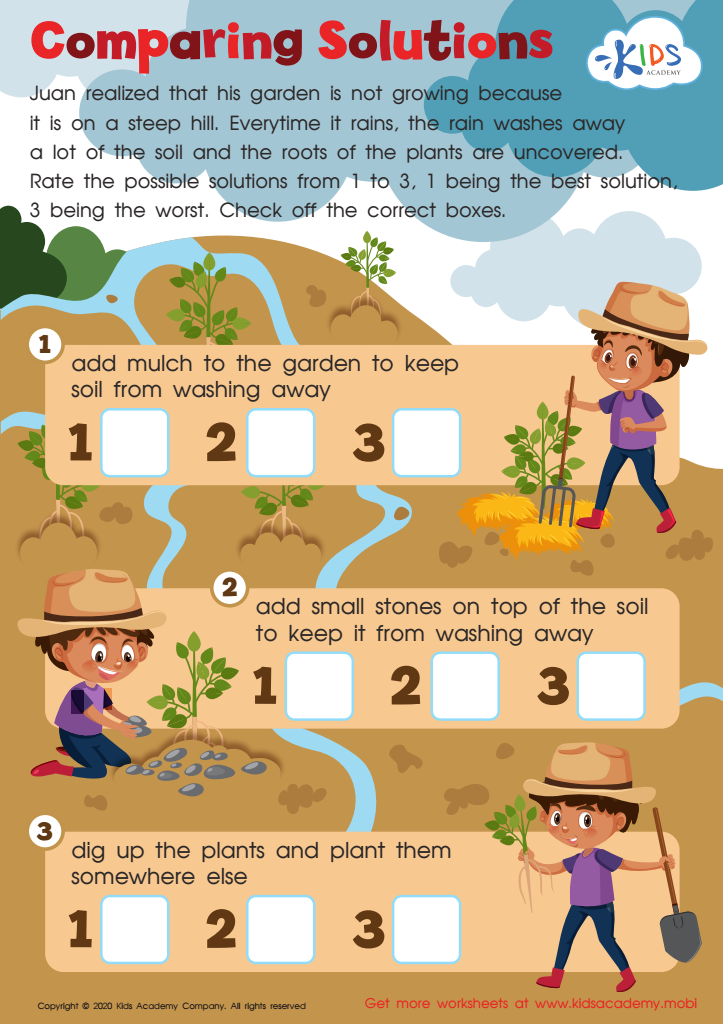

Comparing Solutions Worksheet
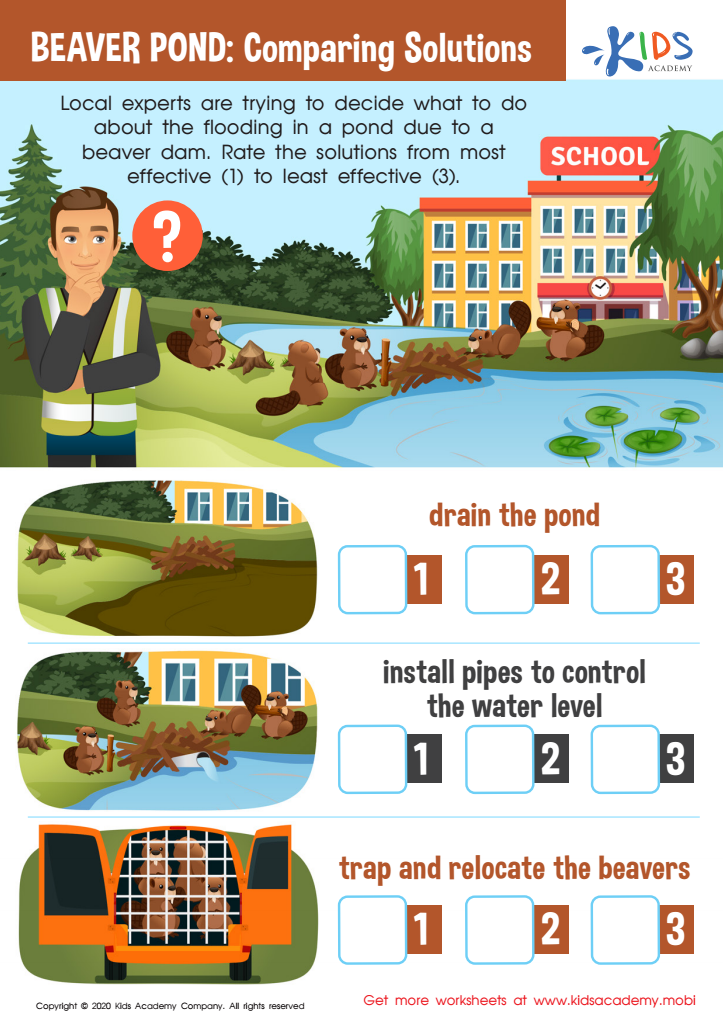

Beaver Pond: Comparing Solutions Worksheet
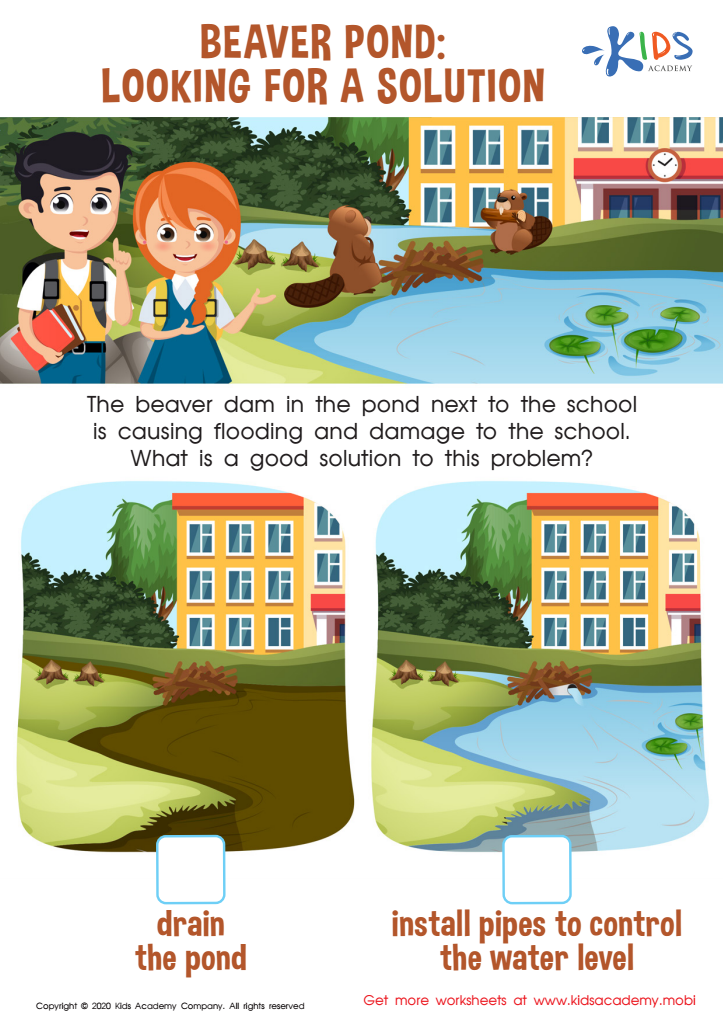

Beaver Pond: Looking for a Solution Worksheet
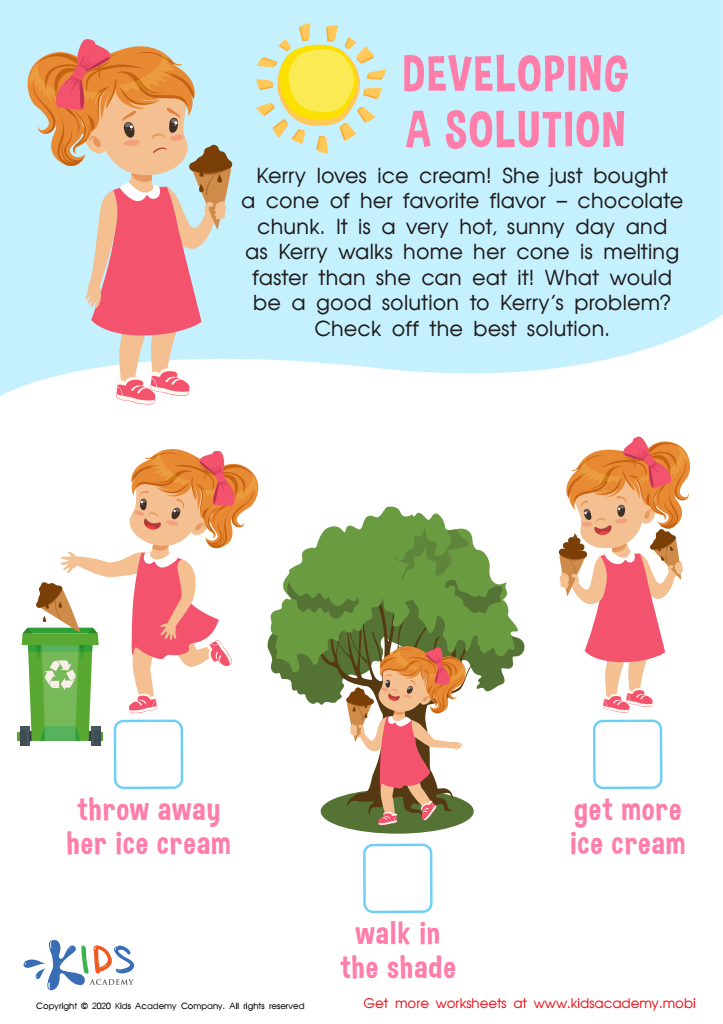

Developing Solution Worksheet
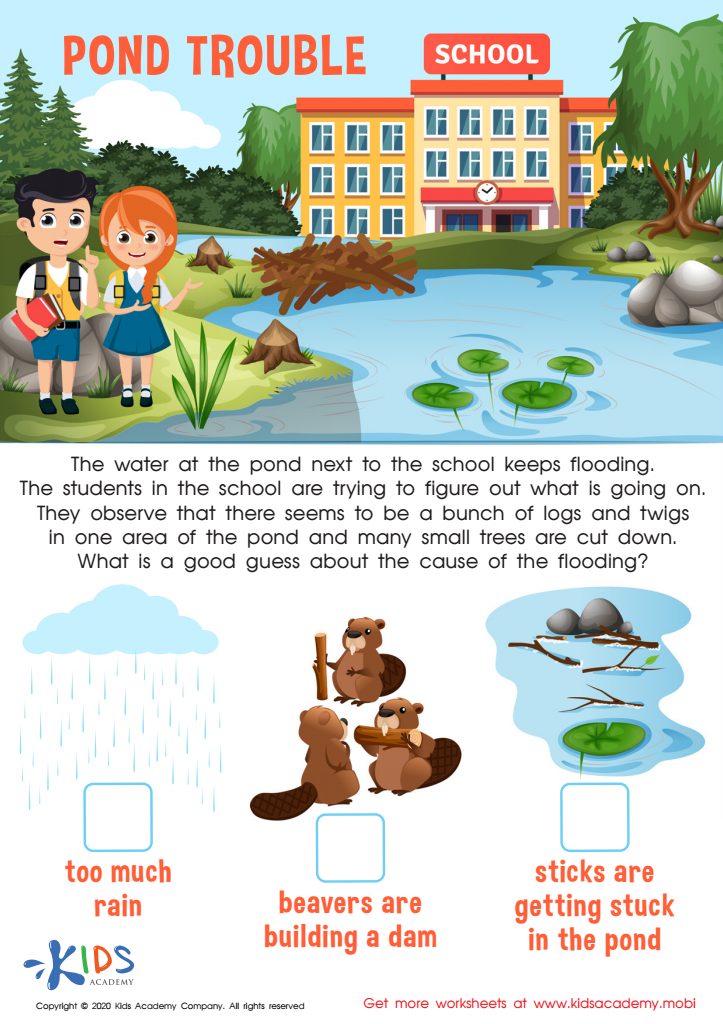

Pond Trouble Worksheet
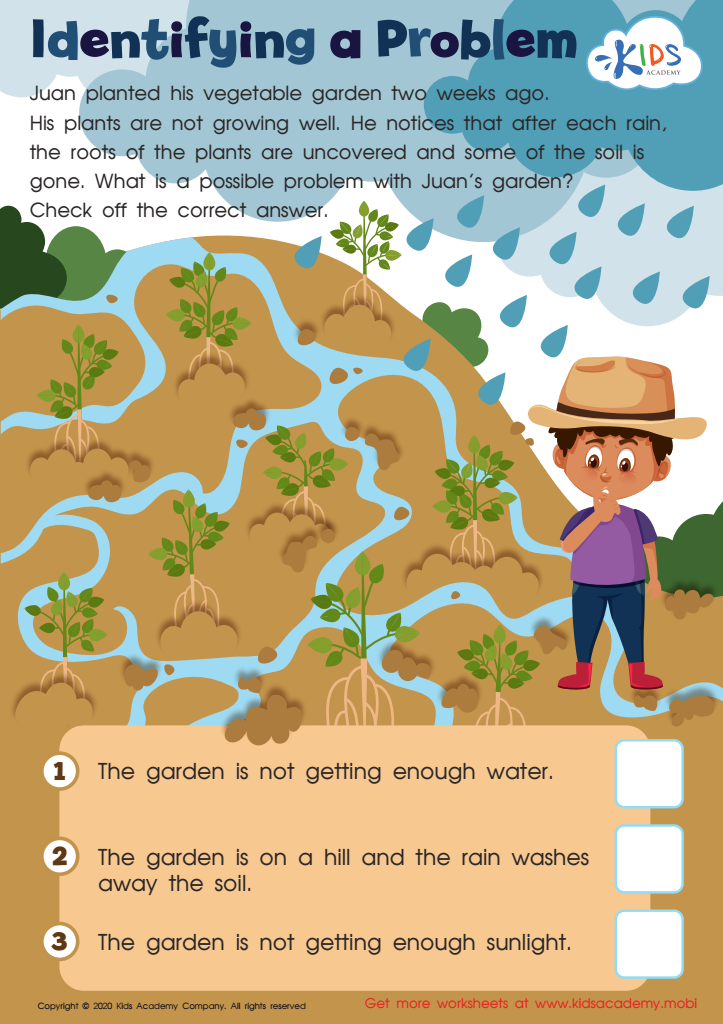

Identifying a Problem Worksheet
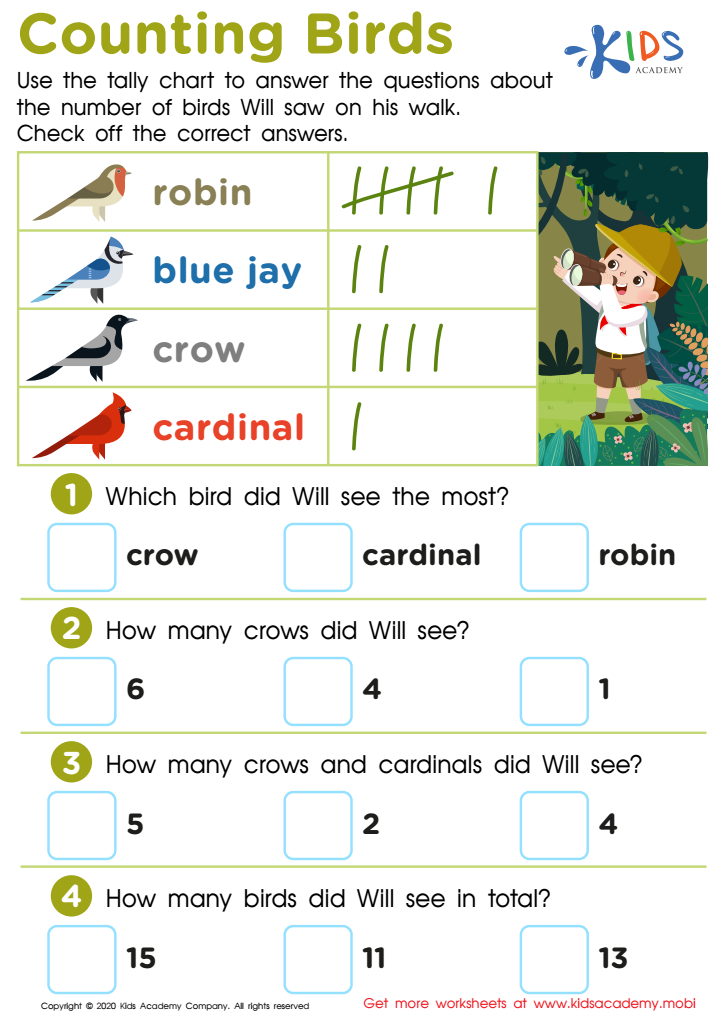

Counting Birds Worksheet
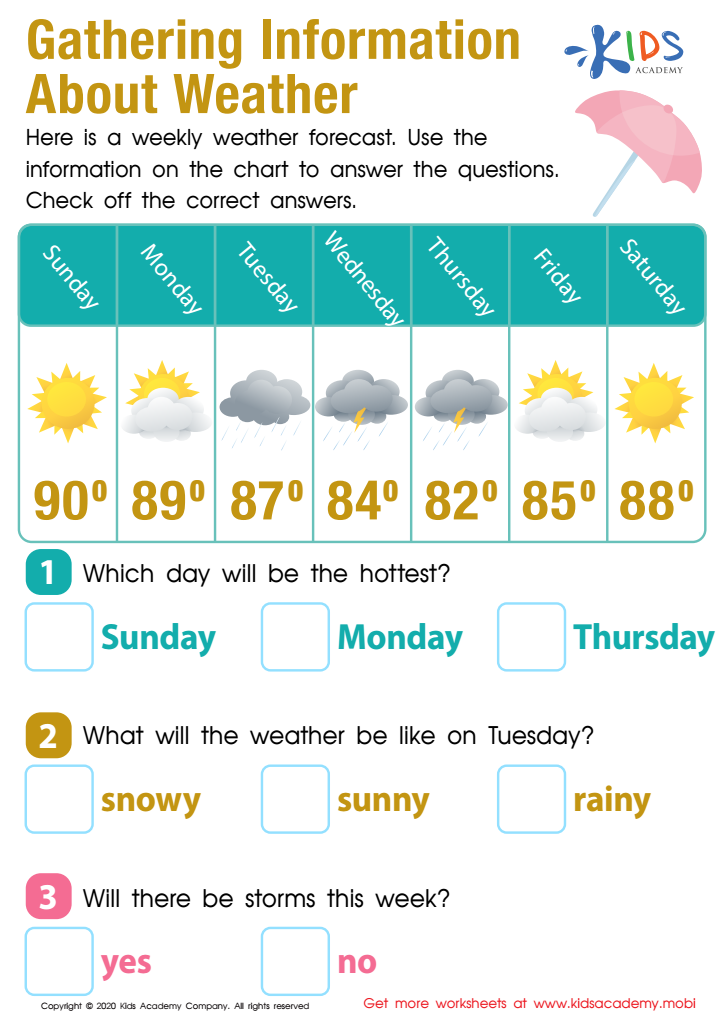

Gathering Information About the Weather Worksheet
Problem-solving activities are essential for children aged 4-6, as they lay the foundation for critical thinking and cognitive skills. At this developmental stage, children are naturally curious and eager to explore their environment. Engaging them in problem-solving exercises fosters this curiosity while encouraging cooperation, communication, and creativity.
Parents and teachers should prioritize these activities because they help develop essential skills such as analytical thinking and emotional regulation. Through problem-solving tasks, children learn to evaluate situations, contemplate multiple solutions, and make decisions, which are crucial skills for everyday life.
Moreover, these activities promote resilience. Children learn that failure is a part of the problem-solving process, encouraging them to persist rather than give up. This instills a growth mindset, teaching them to view challenges as opportunities for learning.
Furthermore, problem-solving can enhance social interactions, as children often need to work collaboratively to find solutions. This teamwork strengthens their ability to communicate and empathize with others.
Ultimately, incorporating problem-solving activities into daily routines supports holistic development, equipping young learners with the skills they need to navigate future academic challenges, social interactions, and real-world situations, setting the stage for lifelong learning.

 Assign to My Students
Assign to My Students
















